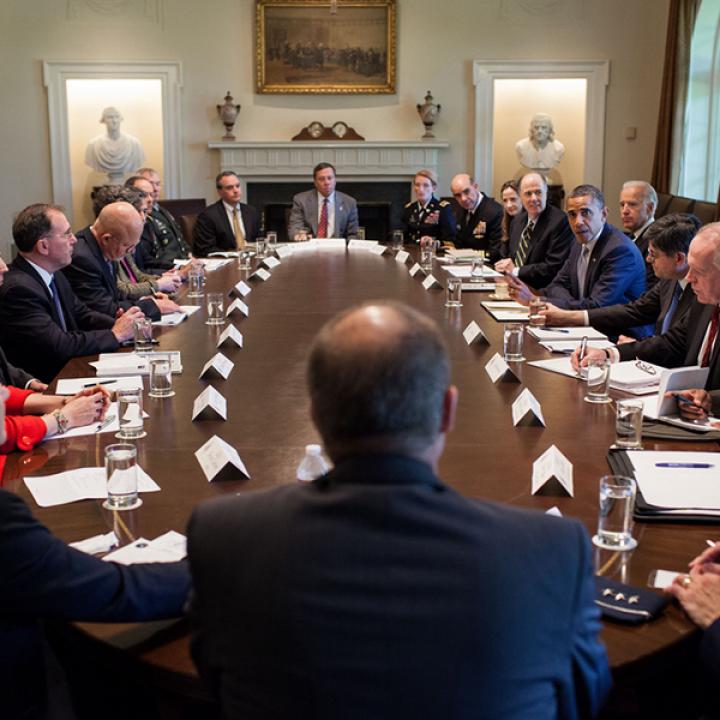

The administration should overcome its hesitations and embrace the leadership role that only the United States can play in addressing the region’s big problems.
President Obama's trip to Israel and Jordan this week is about neither Israel nor Jordan. But it also isn't quite about Iran, as some have asserted, or the Arab uprisings. His trip will be about the United States and the role we see for ourselves in the Middle East. Our allies, to a one, want more American leadership in the region and greater clarity regarding U.S. policy on vital issues; in an increasingly fractious region, it is the one talking point they all share. Their message reflects a troubling irony: A president whose foreign policy slogan was "engagement" in 2008 will, if he does not change course in his second term, leave a legacy of U.S. disengagement from the Middle East.
Obama took office four years ago with a Middle East strategy that emphasized withdrawal from Iraq, resolving the Israeli-Palestinian conflict by getting tough on Israel, improving the U.S. image in Muslim communities and talking to hostile regimes. This strategy failed because it was based on American politics rather than the realities of the Middle East...
Washington Post



